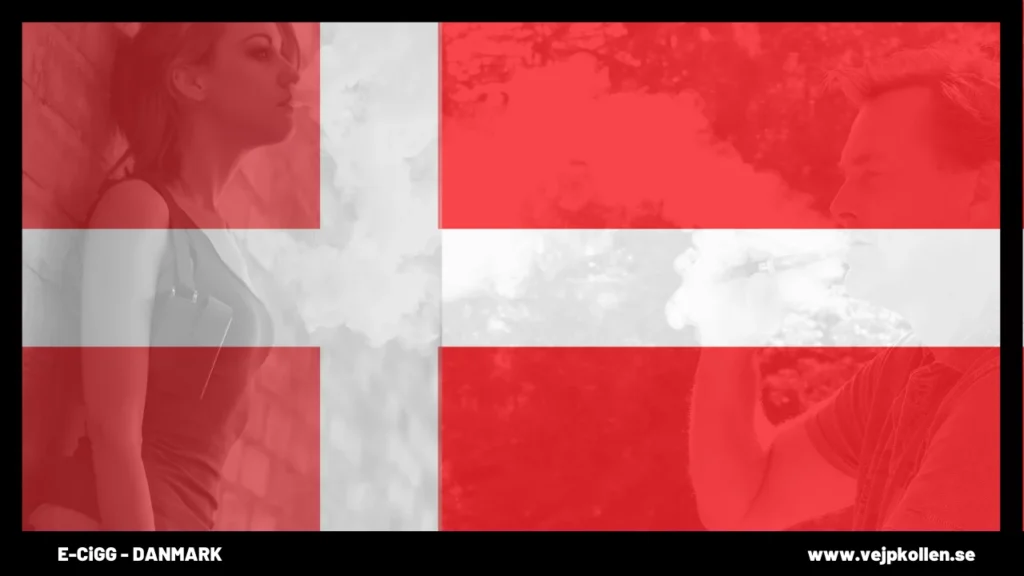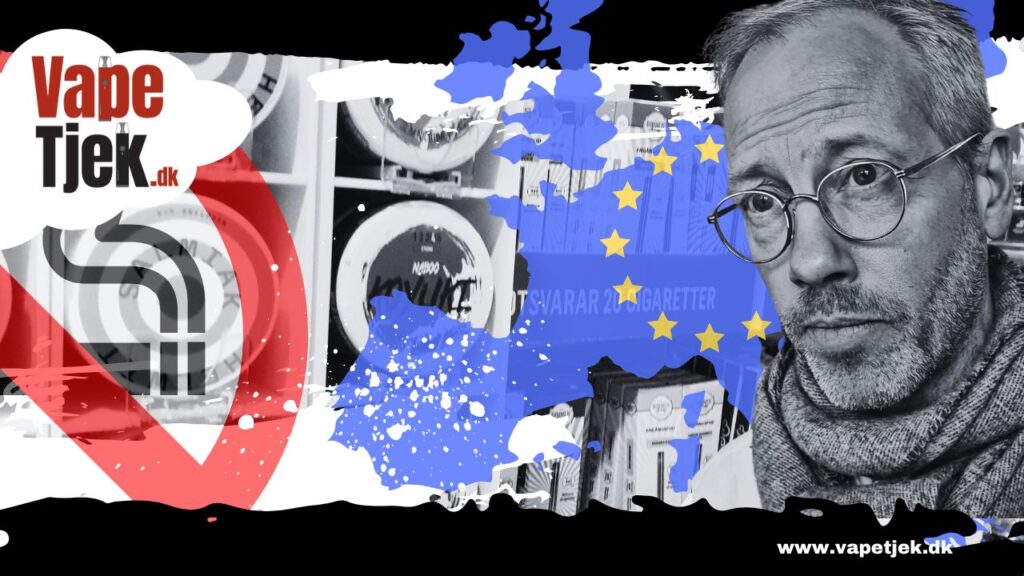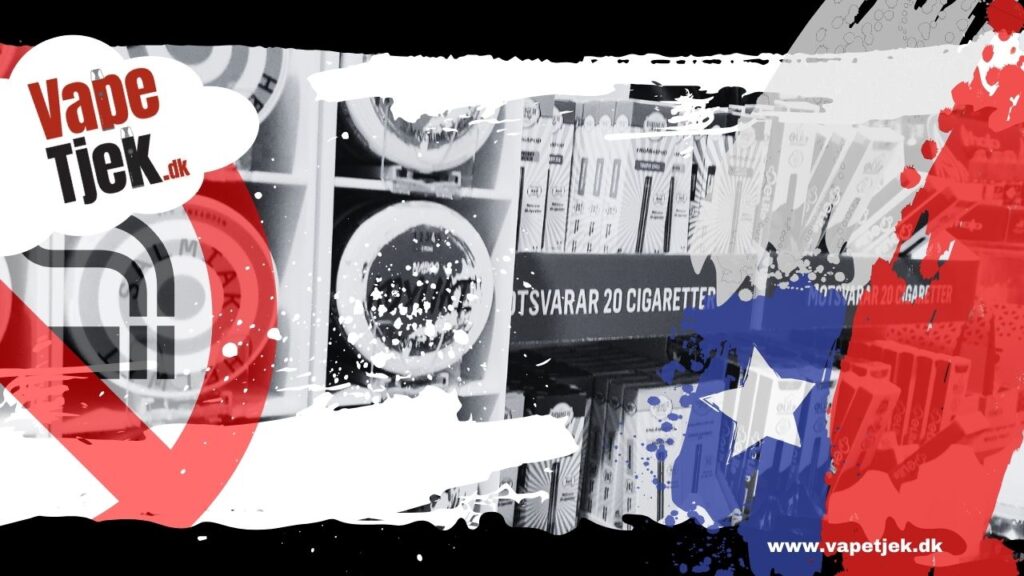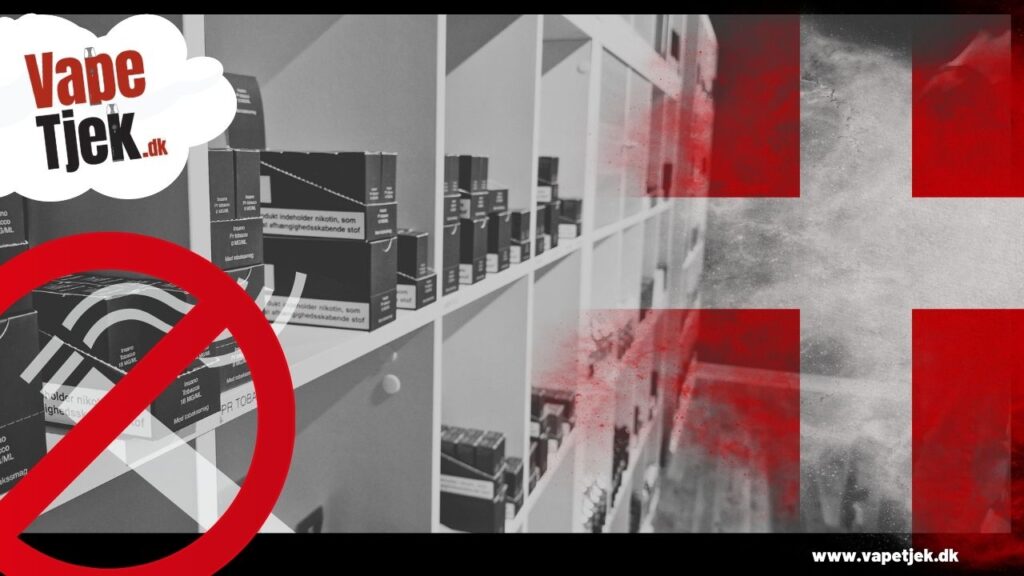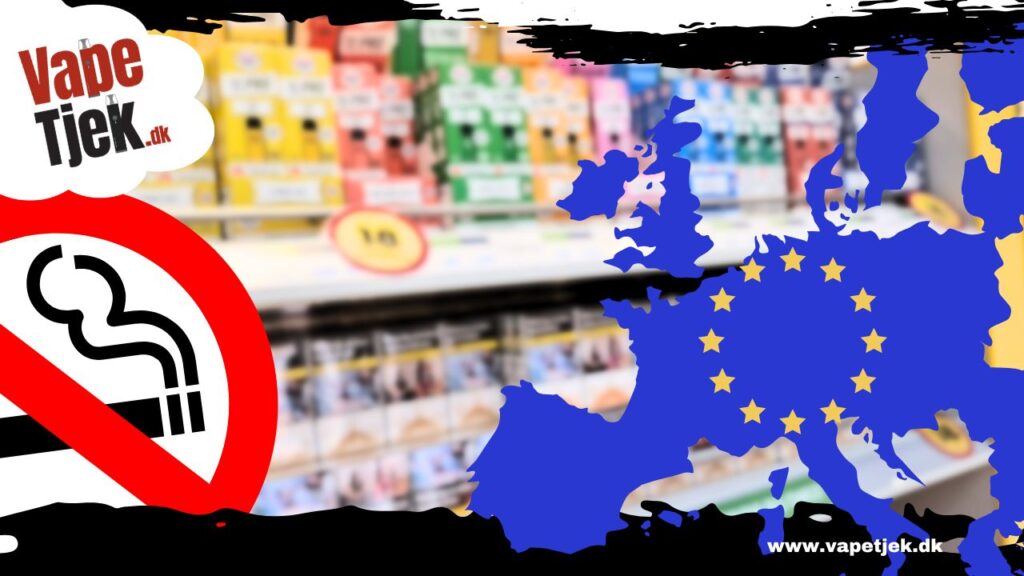This week, the Danish Parliament voted in favour of a ban on flavours in e-liquids. This despite the fact that the ban is contrary to the EU Treaty and free trade within the Union. The ban will come into force in April 2022 and includes all flavours except tobacco and menthol.
"There's a mixture of frustration, amazement and confusion right now," says Kim Dabelstein Petersen, Chairman of Dansk Damper Forening (DADAFO).
The Danish government has chosen to ban almost all flavours in e-liquids. At the same time, the government will ban both visible exposure and "enticing" packaging. According to DADAFO, this effectively means the end of vaping as an effective smoking cessation method in Denmark. The law also threatens the existence of the country's vaping shops.
"If companies don't act legally, they will lose their business within two years," says Kim Dabelstein Petersen to Road hill.
Breaks with the EU Treaty
Sum Road hill previously reported, the European Commission believes that the Danish flavour ban is not in line with the EU harmonised market. As flavoured e-juice is sold in other EU countries, the ban creates a direct trade barrier.
"This is a breach of the EU Treaty. The Danish Parliament decided to allow flavours when they implemented the European Tobacco Products Directive into Danish law." says Kim Dabelstein Petersen.
Neutral packaging
The ban is part of the Danish government's strategy to reduce smoking in the country. The plan involves a comprehensive regulation of all tobacco products, including e-cigarettes. The proposal also includes requirements for so-called "plain packaging"where tobacco products can only be sold in neutral colours, "unattractive", packages - a rule that will also apply to road products.
Flavour bans threaten free trade
In a letter to the Danish Minister of Health, Magnus Heunicke, the European Commission urged the Danish government to postpone the planned ban as recently as November. At least until the issue of flavours has been addressed in the upcoming revision of the European Tobacco Products Directive (TPD).
"The current proposal goes against the temporary derogation that EU law allows for these products. We will address the regulation of flavourings in the revision of the current Tobacco Products Directive and look forward to working closely together on this in 2021." wrote the EU Commission.
"Flavours do not pose a health risk"
However, the Danish government believes that a flavour ban is possible. In a response to the Commission, the government compares flavours in e-liquids to flavours in tobacco and claims that the ban is to protect young people from potentially harmful products.
"They refer to the so-called health clause, which allows EU countries to locally ban products that pose a direct threat to public health. But the arguments that flavours entice young people are based more on emotion, suspicion and lack of knowledge. Flavoured e-juice in itself is not a real health risk. Therefore, the health clause does not apply in this case." says Kim Dabelstein Petersen.
"Nobody knows what happens next"
Jeanett Bergfriedt Andersen, spokeswoman for the Danish e-cigarette industry association BECIG, believes that the confusion following the Danish Parliament's decision is total. Many had hoped that the government would take the EU warning more seriously.
"I think the government will have to postpone the law. But nobody knows what's happening right now." she says to Road hill.
This week, BECIG has tried to get a clear statement from the authorities about what exactly will apply, but without success. This creates great uncertainty among companies.
"Right now we don't know if we can only sell tobacco and menthol flavoured e-juice after 1 April 2022," says Jeanett Bergfriedt Andersen.
Important for companies to act legally
According to Kim Dabelstein Petersen and DADAFO, it's crucial that road contractors act quickly. Otherwise, they stand to lose most of their revenue by 2022.
"We encourage roadside shops to take legal action. Otherwise they will lose their business. The Danish government knows that they have made a law that violates the EU Treaty. There is also the possibility that the EU Commission can intervene legally. But until then, the law will apply." says Kim Dabelstein Petersen.
Tobacco industry takes over the e-cigarette market
If roadside shops disappear, it will open the market for another industry, says Kim Dabelstein Petersen - the tobacco industry.
"Tobacco companies have virtually no presence in the road market in Denmark today. 95 % of the industry consists of independent companies. Flavours are not important to the tobacco industry - they only use them as a marketing tool. When the competition disappears, they take over. Then we end up with only British American Tobacco and their VYPE. If the intention of the law was to remove the tobacco industry from the market, then the Danish government's strategy seems rather absurd," says Kim Dabelstein Petersen.
E-cigarettes twice as effective as nicotine products
According to DADAFO, 75,000 Danes use e-cigarettes to stay away from regular cigarettes. However, the Ministry of Health, like the Swedish health authorities, does not recommend e-cigarettes as a smoking cessation tool. The reason for this is that e-cigarettes are not authorised as a medicine.
At the same time, a new report from the recognised Cochrane Institutethat e-cigarettes are twice as effective at helping smokers quit compared to nicotine replacement products.
The organisation ETHRA, which consists of 23 independent consumer organisations in the EU, launched a survey in the autumn asking vapers how they use e-cigarettes and e-liquids. So far, 35,000 users have participated in the survey, which is open until the end of the year. The aim is to create a clearer picture of how e-cigarettes are used today before the upcoming revision of the European Tobacco Products Directive (TPD).
